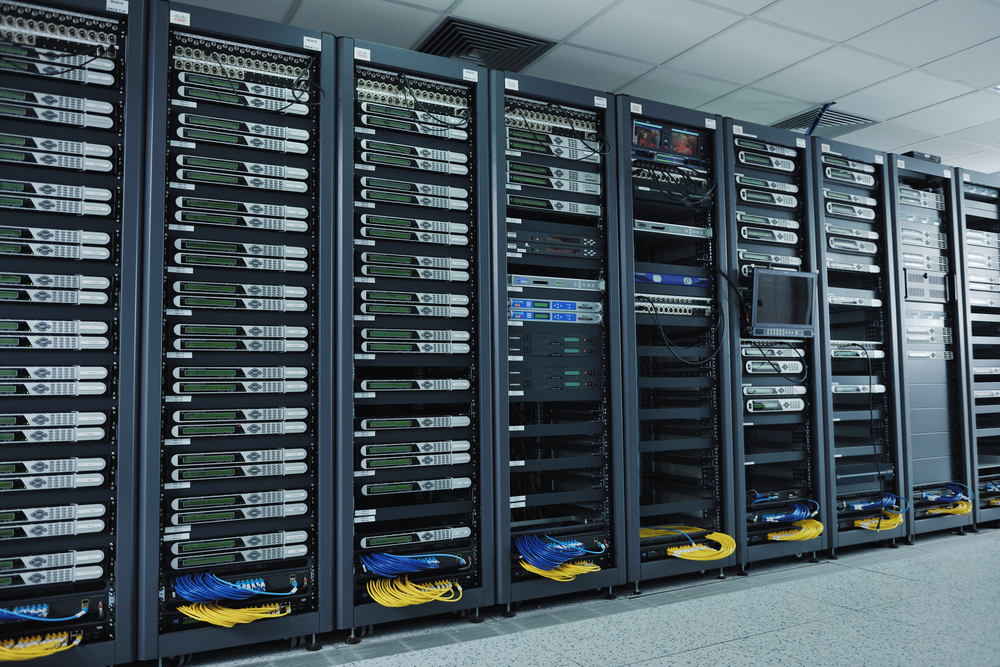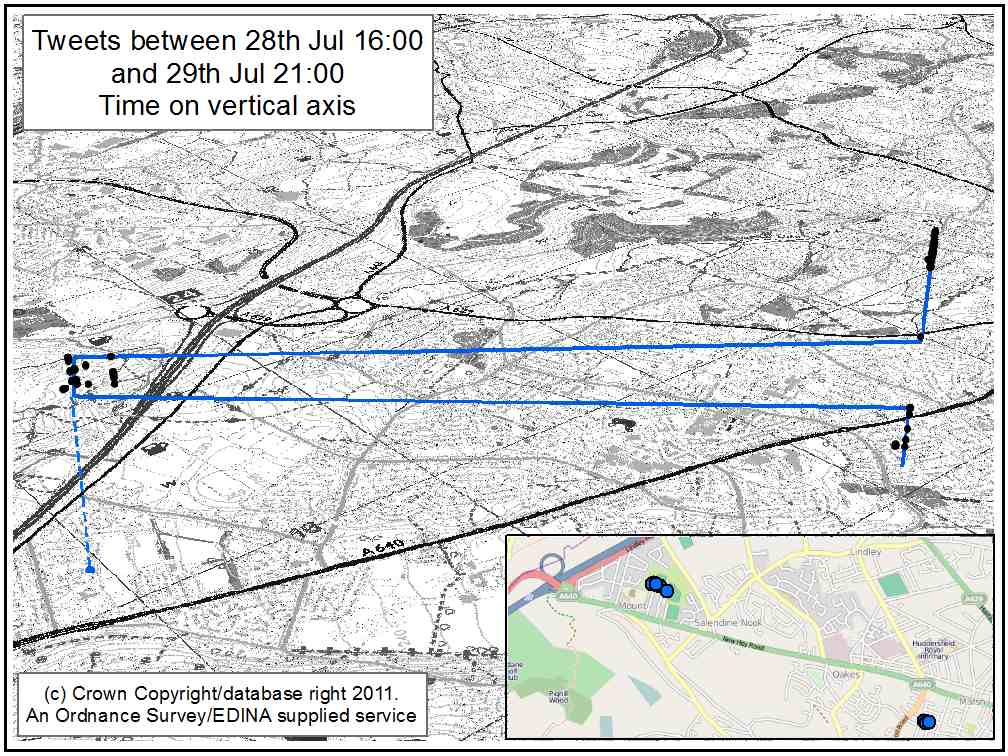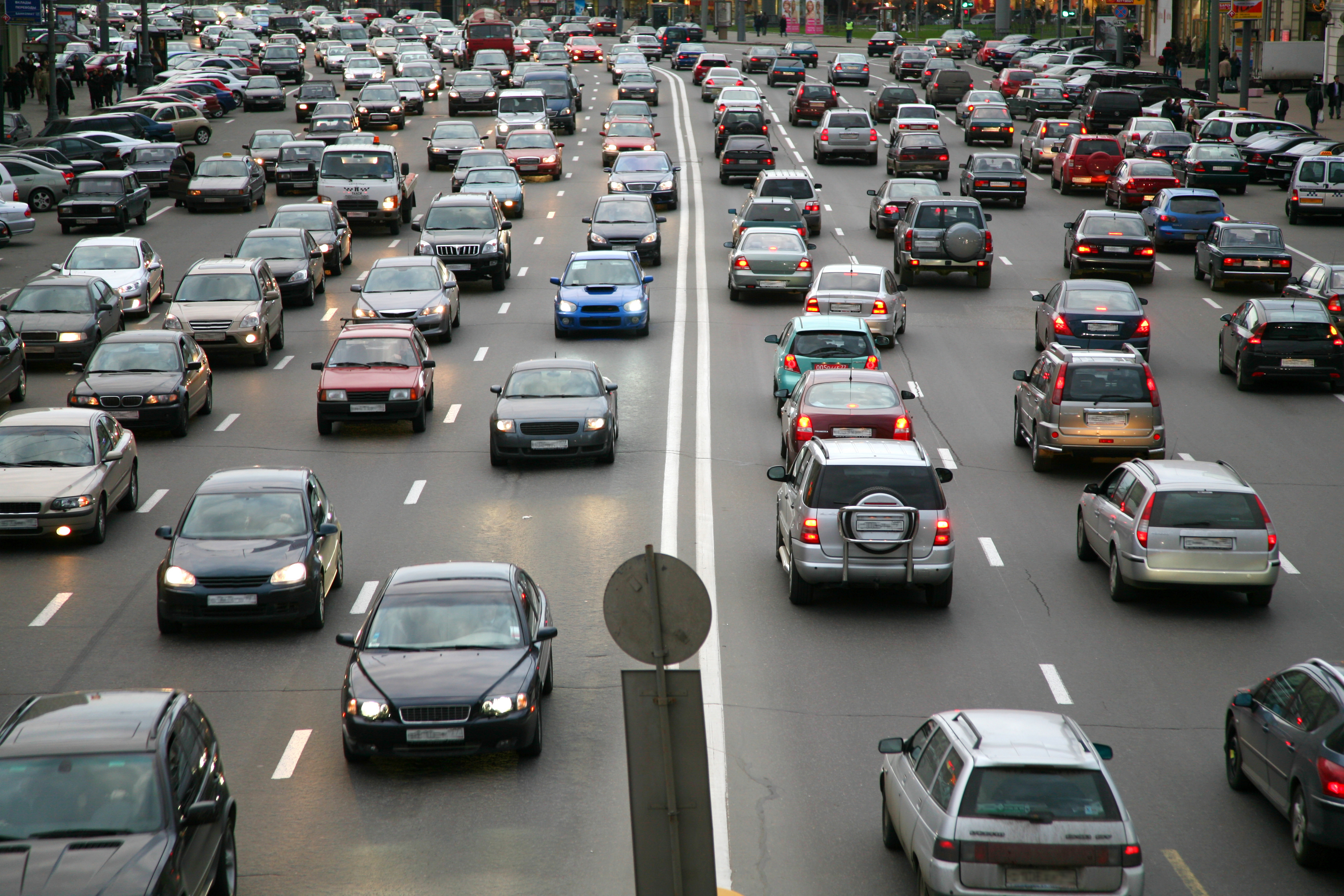GEOG3150
Lecture 7
Big Data and Smart Cities
How to use these slides
These slides are made using html, so they need to be read on-line. You can use the arrows in the bottom-right corner to move between slides, or press the right/left arrows on your keyboard. Pressing escape gives an overview of all slides.
There are also notes for some of the slides. To see these, either print out
the slides (instructions below) or press the 's' key. This
puts you into a different mode that will show notes alongside slides.
If you would like to print them out for offline reading, or save them
as a pdf, you need to add '?print-pdf' to the end of the url, like so:
http://www.geog.leeds.ac.uk/courses/level3/geog3150/lectures/big_data/big_data.html?print-pdf
Then you can print as normal (e.g. File -> Print)
Important: printing only works using Google Chrome
Reading
Here are some of the key texts for the lecture.
Mayer-Schonberger, V. and Cukier, K. (2013) Big Data: A Revolution That Will Transform How We Live, Work, and Think. John Murray
The "Big Data book" is quite famous and gives a great overview of many of the issues associated with the big data "revolution" (to quote the authors). It's also very readable.
Anderson, C., 2008. The End of Theory: The Data Deluge Makes the Scientific Method Obsolete. WIRED. Available online
Anderson's article in Wired magazine, in which he suggests that data are now so abundant that we no longer need theories to understand why things happen, was controversial and widely criticised. He makes an interesting argument, even if it is one he has since stepped away from.
Savage, M. and Burrows, R., 2007. The Coming Crisis of Empirical Sociology. Sociology 41, 885-899.
Savage & Burrows discuss the impact that huge new data sources will have on a field that has traditionally prided itself on developing statistical methods that work with small amounts of neat, well structured data.
Birkin, M., Malleson, N., (2013) Investigating the Behaviour of Twitter Users to Construct an Individual-Level Model of Metropolitan Dynamics. National Centre for Research Methods (NCRM) Working Paper 05/13. University of Leeds.
We discuss how messages posted to messages posted to Twitter can be used enrich our understanding of activity patterns in urban areas.
Batty, M., 2012. Smart cities, big data. Environment and Planning B: Planning and Design 39, 191-193. Link.
A very optimistic view of possibilities offered by big data for understanding cities.
Galdon-Clavell, Gemma (2013). (Not so) smart cities?: The drivers, impact and risks of surveillance-enabled smart environments. Science and Public Policy Online first.
A somewhat less optimistic take on smart cities.
Goodchild M (2007). Citizens as Sensors: the World of Volunteered Geography, GeoJournal, 211-221. Link.
Discusses the concept of Volunteered Geographical Information (VGI) - geographical information created by citizens.
Other Resources
Here are some good videos, news reports, etc. that are worth watching.
Kent Larson: Brilliant designs to fit more people in every city. TED talk.
A talk about designing modern cities. Discusses some interesting new research aimed at making cities more efficient and user-friendly.
BBC: Tomorrows Cities http://www.bbc.co.uk/news/technology-23517670
A series of reports exploring 'smart cities' innovations. In particular, this video looks at the ways that London is becoming a 'smart city'.
Wakefield, J. 2013. Tomorrow's cities: How big data is changing the world. BBC News. [Online]. Available from: Available online
A BBC news piece about big data and smart cities
BBC. 2013. Horizon - The Age of Big Data. Available on YouTube: http://www.youtube.com/watch?v=EsVy28pDsYo
BBC documentary that covers some of the new applications of big data. In particular, there is a section on how the L.A. Police Department are being directed by algorithms (developed by Jeff Brantingham's UC MASC Project) that predict emerging hotspots (often called Predictive Policing).
Caveat
You will see lots of question marks in these slides.
This is because there is still a lot of discussion about the impact that 'big data' and 'smart cities' will have on societies.
The lecture is posing questions, rather than answers!
Outline
Abundance of Data
What kinds of information about individuals can you think of that are being captured right now?
Abundance of Data
What kinds of information about individuals can you think of that are being captured right now?
social media (Facebook, Google, Twitter, etc)
sensed data: air quality, satellite imagery, noise levels ...
movement data: Oyster cards, ANPR, air passengers ...
internet search terms
mobile telephone locations
market research
spatial data (Open Street Map etc.)
transaction data (loyalty cards, shopping habits, etc.)
patient data
schools data
Abundance of Data
What data are being captured about you?
The Abundance of Data

In general, the amount of data being created by, and about, humans is proliferating.
90% of the world's data has been generated in the last two years ( Science Daily)
The amount of data is doubling every two years (EMC).
Total data will hit 8 zetabytes by 2015 ( Silicon Angle).
If this were printed out on double-sided A4 sheets the pile of paper would stretch to the moon and back 10,000 times! (I've made this up so probably not one to quote this in an exam, but you get the idea..).
World Information Capacity
Video draws interesting parallels with biological data processing capabilities.
Outline
The Big Data "Revolution"
This abundance of new data is changing the way that we view the world.

In the physical sciences:
"Data intensive science" (e-science) (Gray, 2007)
Astronomy - Data are pooled in Virtual Observatories (VOs)
CERN Large Hadron Collider "CERN does not have the computing or financial resources to crunch all of the data on site" (CERN)
The Big Data "Revolution"

In business
Loyalty cards etc - greater knowledge about customers
E.g. predicting pregnancy and telling your parents! (take with a pinch of salt)
Hidden value to 'secondary' / 'exhaust' data
Online browsing behaviour
Re-Captcha (digitising books)
Street view (Google self-driving car, improved mapping, wireless locations)
The Big Data "Revolution"

In the social sciences:
"Datafication" (Mayer-Schonberger and Cukier, 2013)
friends, favourite places, moods, thoughts
Location as data
(particularly relevant to geographers)
In medicine:
Do mobile phones cause cancer?
Mobile phone data (Danish Cancer Society)
N≈all - all cancer data and almost all mobile phone users (3.8 million person years)
If you want to know whether mobile phones cause cancer, have a look at the study: http://www.bmj.com/content/343/bmj.d6387
Google Flu Trends (Nature, 2009)
Identify particular search words linked to emergence of a flu cluster
Able to predict new clusters rapidly (1 day vs. 1-2 weeks with traditional methods)
A new research paradigm?
Correlation rather than causation
Don't need to understand why something is happening, only that it is happening.
e.g. Google Flu Trends
Data-driven rather than hypothesis-driven -- letting the data speak
"The End of Theory" (Anderson, 2008)
Lower sampling bias, can accept lower data accuracy
With so much data, accuracy is less important (?)
A Crisis for Social Scientists?
Savage and Burrows (2007) have commended on a "coming crisis" for empirical sociology.
The field has traditionally prided itself on developing statistical methods that can identify generalisable rules from small amounts of neat, well structured data.
These small surveys are potentially being superseded by massive "crowd-sourced" databases that monitor activity patterns
Is there a crisis?
List one or two 'traditional' surveys that you are familiar with.
Could these be replaced by 'big data' analysis?
(e.g. the National Crime Survey for England and Wales)
We will come back to these after the lecture...
Outline
Why 'Smart Cities'?
By 2030, the population living in UK cities is expected to rise from 79% (1950) to 92.2%
The Guardian, using World Resources Institute data)
Worldwide, the proportion is estimated to rise from 40% in 1990 to 70% by 2050
Why 'Smart Cities'?

What are 'Smart Cities'?
... and what do they have to do with geoplanning ...
We have seen how much (new) data are available
This is being used by businesses and by researchers
It could also be put to good use at improving the lives of people in cities
What are 'Smart Cities'?
... and what do they have to do with geoplanning ...
Some definitions.
Smart city is a term that gets together in an integrated way those initiatives oriented at improving the quality of life, sustainability and efficient management of services while innovating in relation to the materials, resources and models used and using technology in an intensive manner. (CTECNO 2012)
[A city] that uses information and communications technologies to make the critical infrastructure components and services ... more aware, interactive and efficient (Belissent 2010)
A city [is] 'smart' when investments ... fuel sustainable economic growth and a high quality of life, with a wise management of natural resources, through participatory government. (Caragliu et al. 2009)
... the urban center of the future, made safe, secure, environmentally green, and efficient because all structures ... are designed, constructed and maintained making use of advanced, integrated materials, sensors, electronics, and networks which are interfaced with computerized systems comprised of databases, tracking, and decision-making algorithms. (Bowerman et al. 2000)
What are common to all of these definitions?
What are 'Smart Cities'?
... and what do they have to do with geoplanning ...
'Smart Cities' are characterised by:
abundance of data
technologies for interpretation and adding value
simulation
visualisation
animation
etc.
mechanisms for feedback and control
Lots of examples to follow...
Outline
Intelligent Rubbish
Finding new ways to understand urban dynamics ...
(example from the Trash Truck project)
Intelligent Traffic Systems
Stockholm becomes 'Green Capital'
Part of this thanks to intelligent traffic systems designed with IBM:
To help Stockholm overcome its traffic congestion problems, IBM helped them develop a road charging system that covers a 24-square-kilometer area of the inner city with 18 barrier-free control points equipped with cameras and a mix of payment channels. This project resulted in a 50 percent drop in morning traffic waiting time, an increase of 60,000 passengers per day in public transportation ridership and an overall improved quality of life for the residents of Stockholm.
Intelligent Traffic Systems
Or you could go one step further...
City Dashboards - London

A way to collect and present data from a variety of different sources
Become an integral part of urban planning and management?
Support a feedback loop; people make decisions based on dynamic, real-time data.
Empowering citizens with knowledge about where they live?
City Dashboards - Leeds
City Dashboards - Singapore
Or, if you are MIT, the dashboard looks more like this...
A project as part of the MIT Senseable Cities Laboratory.
Efficient Parcel Delivery
Not all projects are still in planning, some are a reality.
UPS adopted a new route-finding system called ORION (On-Road Integration Optimization and Navigation)
Massive data-crunching algorithm (all trucks have sensors)
Optimises parcel routes (even trying to avoid left turns)
Some numbers ( Wired magazine):
85 million miles saved
15 trillion trillion (15,000,000,000,000,000,000,000,000) possible routes for a driver with 25 packages
$30 million saved per year if each driver travels one fewer mile each day.
London as a Smart City
Some developments are taking place closer to home...
Outline
A force for good or for evil?

Some people are very optimistic about the possibilities offered by 'Smart Cities' (e.g. Batty, 2012).
Opportunities
A deeper understanding of how urban systems function (at least in the short term).
Manage disruption / emergencies - understand points of failure
Improve quality of life
Manage burgeoning urban populations
Democratisation of urban management (through public data)
A force for good or for evil?
But others are less so (e.g. Galdon-Clavell, 2013).

Risks
How to align 'smart cities' with
informed consent
privacy and data protection
dual use
non-discrimination
Risks of abuse (big brother)
E.g. "Surveillance ... has challenged and undermined the right of all humans to "remain unobserved and unmolested" in their thoughts, personal environments and communications." (The Guardian, 2013).
Market driven, anti-democratic
This all sounds awesome, but have you spotted the flaw in the plan? In such a smart city, the control systems would all be programmed, installed and managed by IBM and CISCO. These private companies would have huge, billion-dollar contracts to manage the biggest cities in the world. When Ops Centres around the world are eventually automated, IBM's software will effectively become your digital mayor - or tyrant. ... IBM would become a de facto member of the government. After all, politicians might tell IBM how they want a city to be run, but it's IBM's implementation that ultimately matters. A new law might decree that smart cars travelling in smart cities must be limited to 30 mph - but what if IBM disagrees, or says the system doesn't have that capability, or imply takes six months to implement the change?(Anthony, 2012).
Outline
Conclusions
Abundance of new data
Business already exploiting new sources
Potentially use these data to better understand urban dynamics
Lots of examples of new 'smart cities' initiatives
CISCO Smart + Connected Communities
Ultimately improve quality of life (?)
Big questions around data protection, ethics and surveillance.
Now: Smart Cities seminar
Make your way to the main geography foyer for a seminar, and for a chance to play with some 'smart cities' technologies.